North Korea Says Kim’s Relations With Trump ‘Not Bad,’ but Stands Firm on Nukes

© Doug Mills/The New York Times


© Doug Mills/The New York Times


© Korean Central News Agency, via Agence France-Presse — Getty Images


Despite escalating fighting and a humanitarian catastrophe, the UN has received only 34% of the planned $2.6 billion for aid to Ukraine in 2025, reveals UN Deputy Secretary-General for Humanitarian Affairs Joyce Msuya, UkrInform reports.
In the first half of 2025, Russia killed or injured 6,754 civilians in Ukraine, the highest number for a six-month period since 2022. After a surge in Russian attacks on civilians following each US peace effort, President Donald Trump gave Russia a 50-day ultimatum to strike a peace deal with Ukraine. However, the attack continue.
“Without immediate funding, even priority programs may be shut down,” she warned during a UN Security Council meeting.
The UN has already launched its 2025–2026 winter response plan, which targets the 1.7 million Ukrainians left in high-risk areas.
Since the last Security Council meeting on 20 June, the humanitarian situation has significantly worsened, Msuya said. In the first half of 2025, the number of civilian casualties increased by nearly 50% compared to last year.
Currently, 13 million Ukrainians need assistance, but due to a funding shortfall, only 3.6 million have received it.
Access to Russian-occupied regions remains extremely limited, Msuya emphasized. This makes it impossible to provide basic aid to millions of civilians.
Russia is transforming occupied Ukrainian regions into military bases. Moscow troops use Donetsk and Luhansk oblasts to build up combat units, establish fortified positions, and organize logistics hubs. Meanwhile, from occupied Crimea, Russian forces are launching missiles and drones at other Ukrainian cities.
She stressed that Ukrainians cannot depend on donor fatigue or delay, urging UN member states to act without hesitation.
Earlier, Euromaidan Press reported that Ukrainians suffer from dehydration and violence in Donetsk. The city’s residents under the Russian occupation face catastrophic water shortages, with no supply to homes for up to three days at a time.
Military expert Roman Svitan said that the Russians destroyed the Khanzhonkivske Reservoir in 2022. The pumps capable of moving millions of tons of water were completely demolished. This water sustained all of Donbas, all the way to Mariupol.
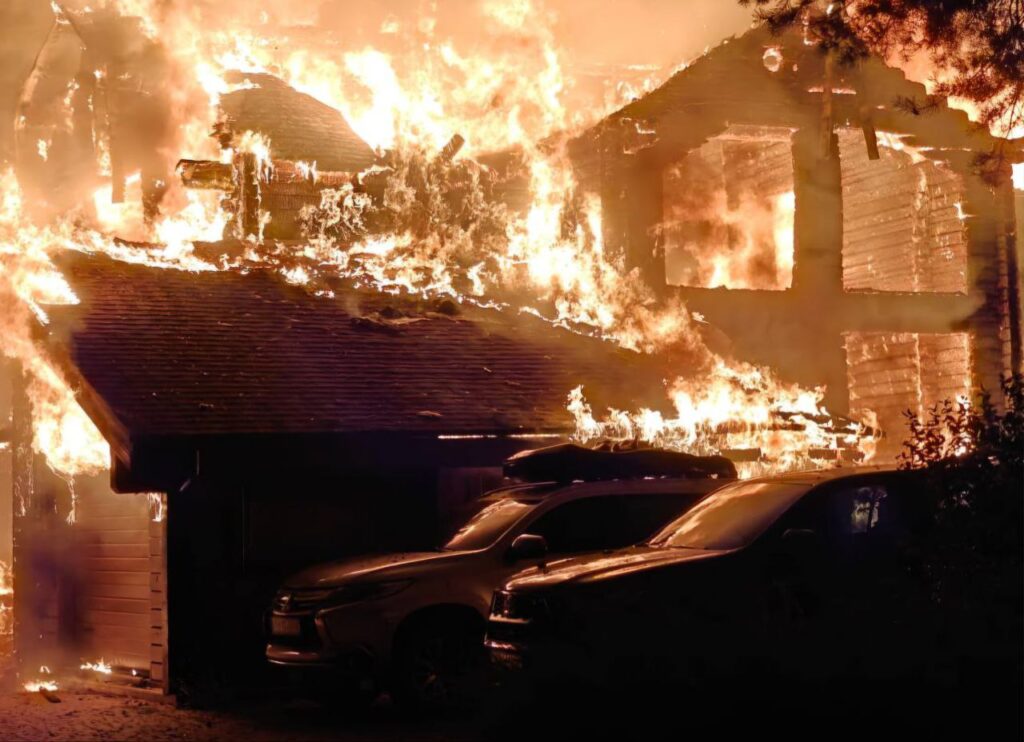

Russia is wiping out Ukrainian cities daily. In the first half of 2025, 6,754 civilians in Ukraine were killed or injured, the highest number for a six-month period since 2022, says Miroslav Jenča, UN Assistant Secretary-General for Europe, Central Asia, and the Americas, UkrInform reports.
After a surge in Russian attacks on civilians following each US peace effort, President Donald Trump gave Russia a 50-day ultimatum to strike a peace deal with Ukraine. He warned that failure to comply would trigger harsh economic sanctions, including tariffs of around 100% not only against Russia itself but also against countries purchasing its energy resources.
Daily shelling of Ukrainian towns and villages with missiles and drones has only intensified, he said during a UN Security Council meeting. June saw the highest monthly civilian casualty count in three years.
In July alone, Russia launched at least 5,183 long-range munitions at Ukraine, including a record 728 drones on 9 July. Kyiv and the port city of Odesa have been hit hardest in recent weeks.
Even Ukraine’s western regions, once considered relatively safe, are no longer spared from massive aerial attacks.
According to official UN data, at least 13,580 civilians have been killed since Russia’s full-scale invasion of Ukraine began, including 716 children. Another 34,115 people have been injured.
“There is no safe place in Ukraine today,” said Jenča.
He stressed that international law clearly prohibits attacks on civilians and that the UN strongly condemns all such assaults.


© Martial Trezzini/Keystone, via Reuters


© Martial Trezzini/Keystone, via Reuters


The UN Human Rights Monitoring Mission in Ukraine documented 232 civilian deaths and 1,343 injuries in June 2025, marking the highest monthly casualty toll in three years as Russian forces launched ten times more missile strikes and drone attacks than in June 2024.
Russia’s unprecedented escalation of violence against civilians coincides with military recruitment reaching 30,000 troops monthly while Ukrainian territories face daily bombardment from an estimated 600,000 Russian forces—the highest troop presence since the invasion began.
The surge demonstrates Moscow’s strategic shift toward terrorizing populations across practically every Ukrainian region as Russian military casualties exceed one million, forcing reliance on terror tactics against defenseless civilians rather than battlefield advances.
The June statistics reveal Russia’s expanding geographical scope of civilian terror, with casualties documented in at least 16 oblasts and Kyiv, regardless of distance from frontlines. The UN monitoring mission noted Russia’s tenfold increase in long-range missile strikes and loitering munition attacks compared to the same period in 2024.
“Civilians across Ukraine are facing suffering we haven’t seen for more than three years,” said Danielle Bell, head of the UN Human Rights Monitoring Mission in Ukraine. “The increase in long-range missile strikes and drone attacks has brought even more death and harm to civilian populations in areas far from the front lines.”
The 9 July assault exemplified this unprecedented escalation, with Russian forces deploying 741 projectiles—728 drones and 13 missiles—in the largest single-night attack since the full-scale invasion began, primarily targeting the western city of Lutsk with 50 drones and five missiles.
Since then, Russia had launched massive aerial assaults each night, with the latest—12 July—targeting west Ukraine, hitherto considered a safe haven from Russia’s terror.
The psychological impact on Ukrainian children has reached alarming levels as families adapt to constant aerial threats. “Children are sleeping not in beds, but in corridors, basements or bathrooms, covering their ears with their hands so as not to hear the sounds of sirens and explosions,” Bell emphasized. “Such experiences leave deep psychological trauma.”
The broader 2025 trend confirms systematic deterioration in civilian protection. During the first half of 2025, total civilian casualties reached 6,754 people—a 54% increase compared to the same period in 2024, when 4,381 casualties were documented. Deaths among civilians rose 17%, while injuries surged 64%.
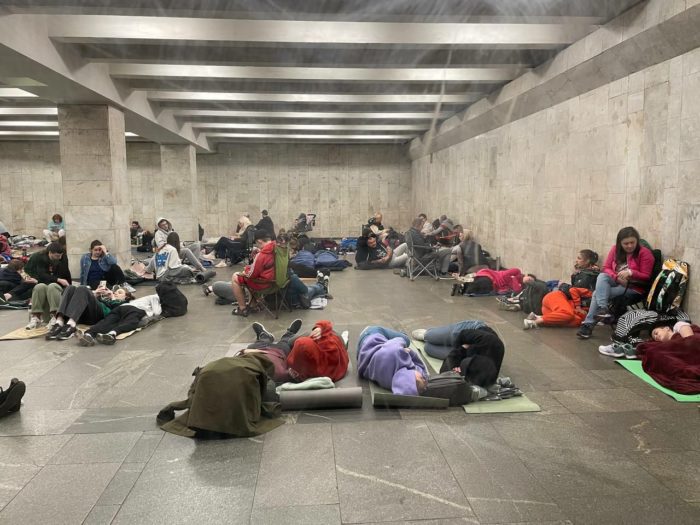
Three primary factors drove the dramatic increase in civilian casualties: Russia’s deployment of powerful long-range missiles and drones against urban areas, enhanced destructive capacity of these weapons, and growing frequency of attacks. The expanded use of short-range drones has proven particularly deadly for communities near frontlines.
“In many regions, daily life has been reduced to constantly seeking shelter,” Bell noted. “During mass bombings, people remain in shelters for hours, and when they emerge, they often see that their homes or workplaces have been damaged or completely destroyed. This cycle of seeking shelter and suffering losses has become harsh everyday reality for many communities.”
Since Russia launched its full-scale invasion on 24 February 2022, the UN mission has documented at least 13,580 civilian deaths, including 716 children, and 34,115 civilian injuries, including 2,173 children.
Russia’s escalating civilian casualties occur as military losses mount exponentially. Ukrainian officials announced in June that Russian military personnel losses reached 1,000,340 since 24 February 2022, with more than 628,000 deaths occurring in just the last 18 months. Despite these massive losses, Russia continues recruiting approximately 30,000 troops monthly while maintaining about 600,000 forces in Ukraine.
The June civilian casualty surge follows April 2025 becoming the deadliest month for Ukrainian civilians since September 2024, with 209 deaths and 1,146 injuries primarily from ballistic missile strikes on major cities including Kryvyi Rih, Sumy, Dnipro, Zaporizhzhia, Kyiv, and Kharkiv.
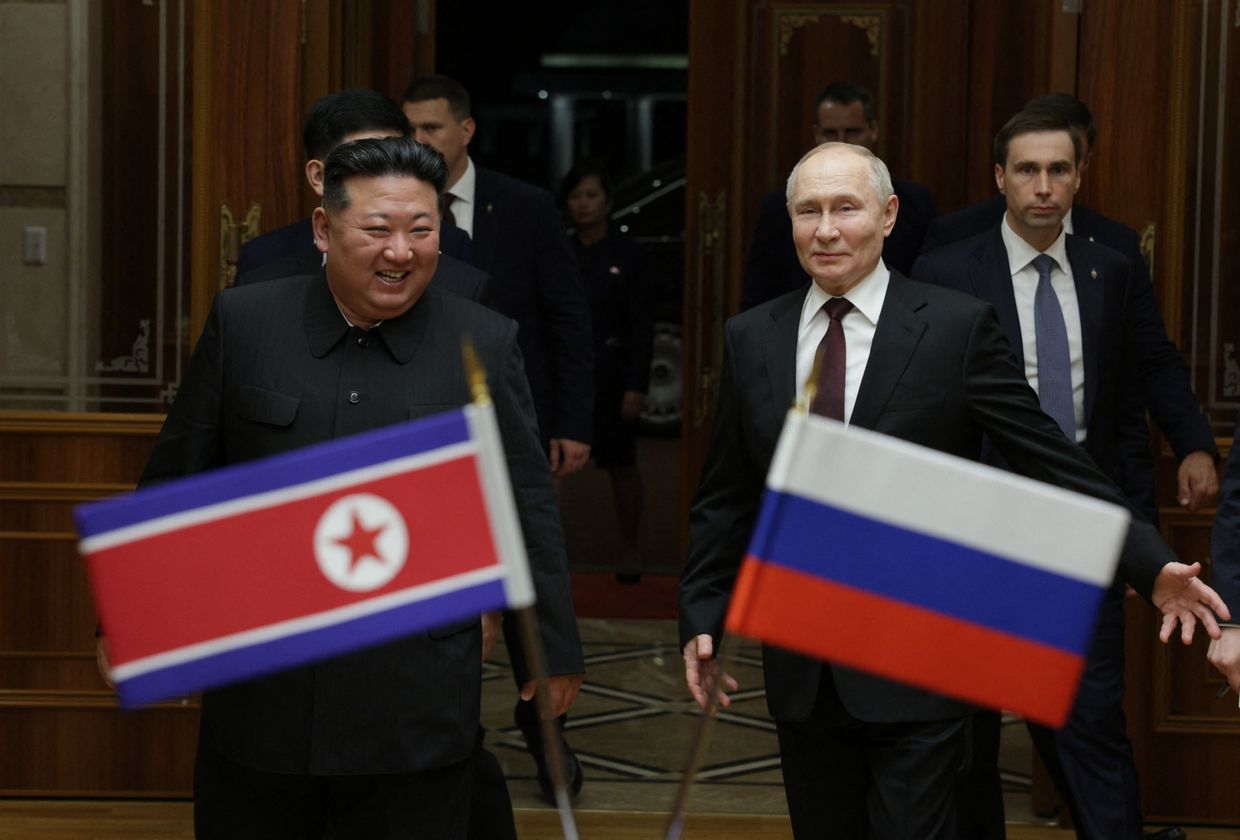

North Korean leader Kim Jong Un has publicly honored his country's soldiers killed while fighting in Russia's war against Ukraine, in a rare acknowledgment by Pyongyang of its battlefield losses, the Guardian reported on July 1.
South Korea estimates that North Korea has sent around 15,000 troops to support Russia, suffering approximately 4,700 casualties, including 600 deaths. More deployments are expected as early as July or August, South Korea's National Intelligence Service (NIS) said.
Photographs of Kim resting his hands on flag-draped coffins were displayed during a gala concert in Pyongyang on June 30 to commemorate the first anniversary of a military treaty signed between North Korea and Russia.
Russian President Vladimir Putin and Kim signed the Comprehensive Strategic Partnership Agreement in Pyongyang in June 2024. Under the treaty, the two countries pledged to provide aid to one another if either is attacked.
The images of the concert showed at least six coffins and emotional scenes of Kim alongside top officials, including his sister Kim Yo Jong and Foreign Minister Choe Son Hui, all dressed in winter clothing, suggesting the repatriation may have taken place months ago.
The event at East Pyongyang Grand Theatre included performances by North Korean and visiting Russian artists and displayed images celebrating the alliance, including scenes of soldiers from both countries waving flags and purported pages from a blood-stained notebook said to belong to a North Korean soldier killed in Russia's Kursk Oblast.
The Guardian reported that the ceremony was the first time North Korean state media had shown footage and photos of fallen troops in a way accessible to the North Korean public.
Footage broadcast on state-run KRT showed Kim appearing emotional at times while seated next to Russian Culture Minister Olga Lyubimova and his daughter, Kim Ju Ae. Audience members were seen wiping away tears.
Kim met with Lyubimova in Pyongyang on June 29 to discuss expanding bilateral cooperation in culture and the arts.
North Korea held a farewell ceremony for soldiers killed in Russia’s Kursk region. State TV aired footage of Kim Jong Un tearfully standing by a coffin — including hired state actors who were forced to cry. A concert in East Pyongyang also featured Russian songs. https://t.co/xV0TkminHs pic.twitter.com/WVWSSM5P1Y
— NOELREPORTS 🇪🇺 🇺🇦 (@NOELreports) July 1, 2025
North Korea initially denied sending combat troops to Ukraine, but Kim's tribute follows official confirmations of Pyongyang's direct military involvement in the Russia-Ukraine war. In April, both Kim and Putin described North Korean troops deployed to Ukraine as "heroes."
Kim also announced plans to build a monument in Pyongyang to honor the fallen and lay flowers at their tombstones.
Pyongyang has reportedly begun recruiting additional soldiers for future deployments. The move would add to what Seoul describes as significant military support from North Korea, including more than 10 million artillery shells and multiple ballistic missile transfers in exchange for economic and technical assistance from Moscow.
North Korea may also send up to 25,000 laborers to Russia to support drone production, including Shahed-type loitering munitions at the Alabuga Special Economic Zone in Tatarstan.
Russian Security Council Secretary Sergei Shoigu visited North Korea on June 17 under a special directive from Putin and announced a deal for Pyongyang to send 1,000 sappers and 5,000 military engineers to Russia's Kursk Oblast.
Thousands of North Korean troops reportedly participated in front-line operations there, helping Russia repel a Ukrainian cross-border offensive that began in August 2024. Ukrainian forces briefly held 1,300 square kilometers (500 square miles) in Kursk Oblast before losing most of the territory during a Russian counteroffensive in March 2025, reportedly supported by North Korean units.
U.K. defense intelligence places North Korean casualties from that operation at more than 6,000.
 The Kyiv IndependentElsa Court
The Kyiv IndependentElsa Court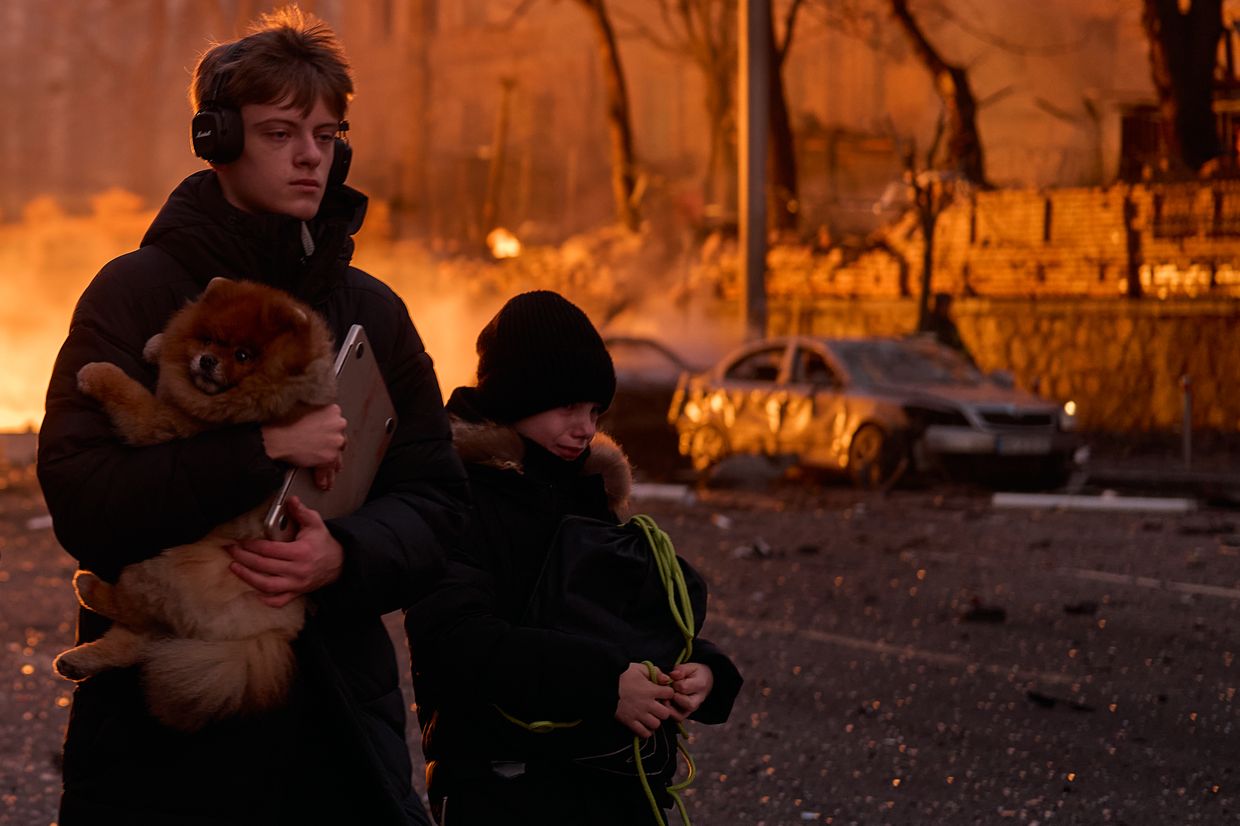
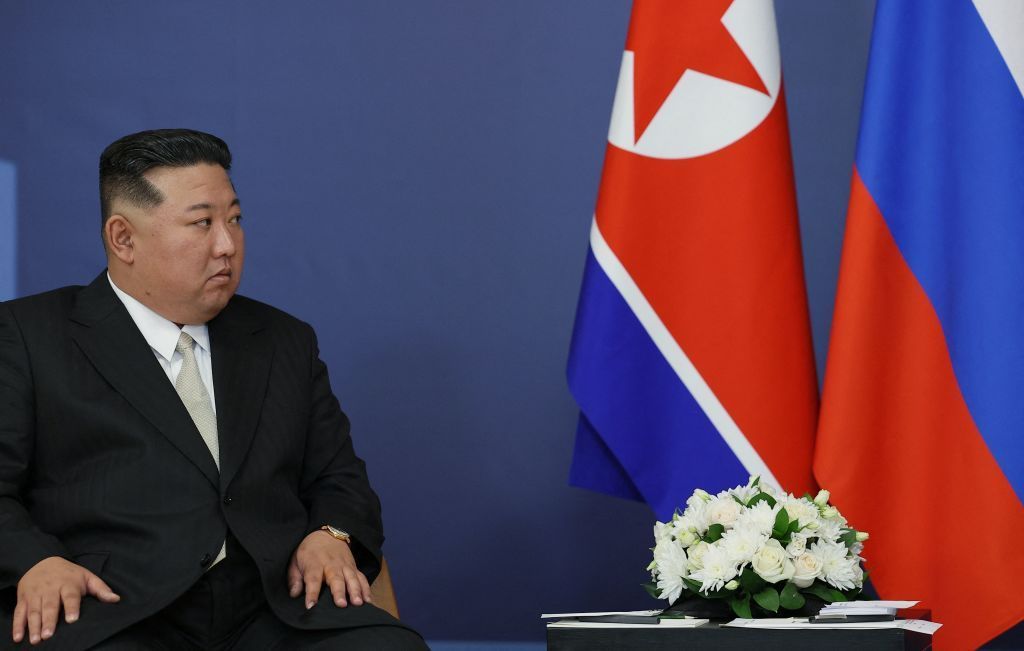

North Korean leader Kim Jong-un met with Russian Culture Minister Olga Lyubimova in Pyongyang on June 29 to discuss expanding bilateral cooperation in culture and the arts, according to North Korea’s state-run Korean Central News Agency (KCNA).
The meeting took place at the headquarters of the ruling Workers' Party of Korea's Central Committee and was also attended by Russian Ambassador to North Korea Alexandr Matsegora, KCNA reported.
Lyubimova led a Russian culture ministry delegation to Pyongyang, arriving on June 28 at the invitation of North Korea’s culture ministry to mark the first anniversary of the countries' comprehensive strategic partnership treaty.
During the meeting, Kim noted what he described as "broad and in-depth exchanges and cooperation" across various sectors since the treaty’s signing. He said these developments "have made tangible contributions to the mutual development and well-being of the two countries' peoples," according to KCNA.
Kim also emphasized the role of cultural and artistic exchange in reinforcing public sentiment and bilateral ties. "It is important for the cultural sector to guide the relations between the two countries," he said. Lyubimova, for her part, added that cultural cooperation between the countries had reached its highest level to date.
Kim’s daughter, known as Ju-ae, appeared beside him during the meeting with Lyubimova, marking her second known presence at a diplomatic event, following her attendance at a Russian Embassy function in Pyongyang in May.
The visits and meetings come amid growing North Korea-Russia engagement across multiple sectors, including military cooperation.
Since the two countries sinced a mutual defense treaty last June, North Korea has deployed around 11,000 elite troops to support Russia’s war against Ukraine, making up over 20% of Kim Jong-un’s "personal reserve" force, Ukrainian Defense Minister Rustem Umerov said at a June 26 press briefing.
"These are soldiers specially selected based on physical, psychological, and other criteria," Umerov said. "These units have already suffered significant losses."
Umerov added that North Korea had considered sending more troops, but doing so could further weaken its strategic reserves and pose risks to regime stability. He noted there have been four known rotations of North Korean units in Ukraine.
According to U.K. defense intelligence, North Korea has likely suffered over 6,000 casualties since troops were first deployed to Russia’s Kursk Oblast in fall 2024.
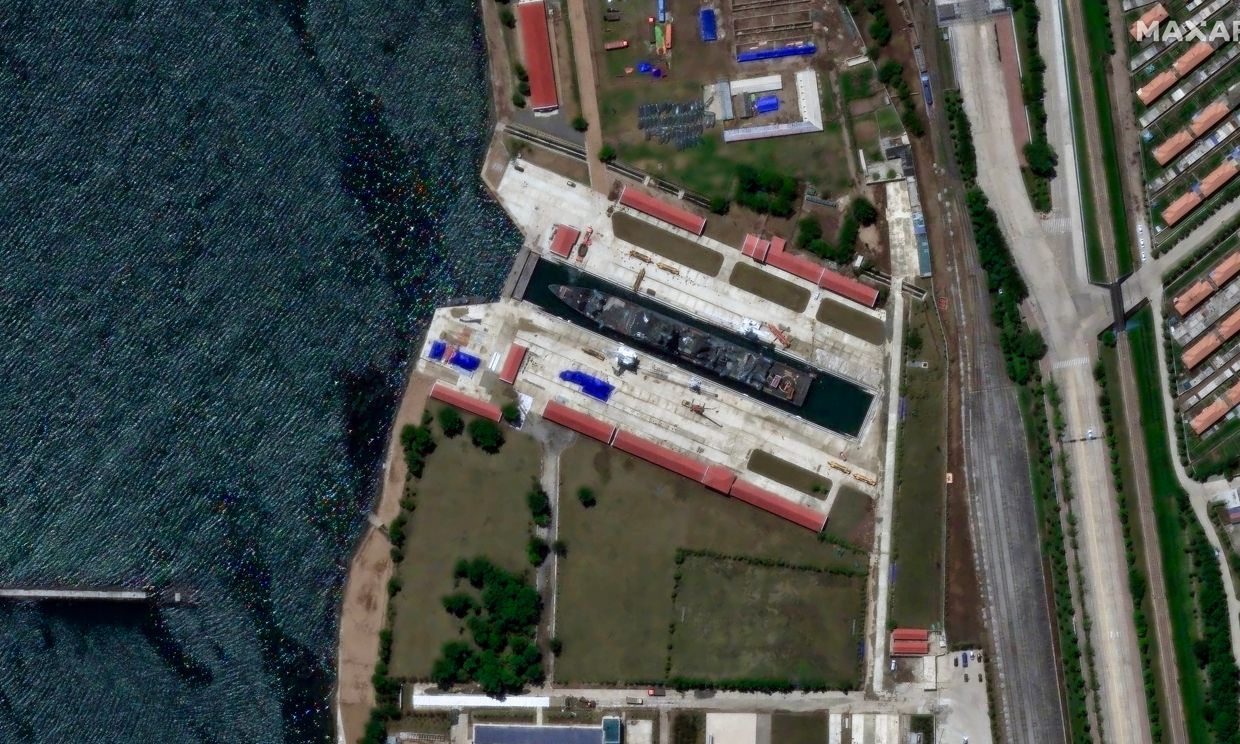

Russia appears to have provided North Korea with extensive assistance in designing and rapidly constructing two advanced destroyers, the most modern in Pyongyang's fleet, the Wall Street Journal (WSJ) reported on June 25.
The destroyers, part of the new Choe Hyon class, were built in just over a year — an unusually fast timeline that analysts say would have been impossible without foreign support.
Satellite imagery and launch footage suggest a clear Russian design influence, including the distinctive bow and stern structure found on Russia's Admiral Grigorovich-class frigates.
One of the destroyers, launched in April, was followed in May by a failed launch during which the second vessel capsized in front of North Korean leader Kim Jong Un.
The incident prompted outrage from Kim, who condemned the failed launch as a "criminal act" and placed blame on several state institutions, accusing relevant officials of "irresponsibility" which "could not be tolerated,"North Korean state-run Korean Central News Agency (KCNA) reported.
According to the agency, a malfunction in the launch mechanism caused the stern of the 5,000-ton destroyer to slide into the water too early, while the rest of the ship remained stuck.
Damage to the bottom of the ship threw it off balance, and the bow failed to move, resulting in "a serious accident."
The wreck was recovered in early June.
Mike Plunkett, a senior naval analyst at Janes, an open-source intelligence company, told the WSJ that the ships appeared to have signs of Russian involvement. He pointed to identical hull lines and profiles where the hull connects to the side, between the Korean and Russian vessels.
One of the destroyers appears to be equipped with the Russian Pantsir-M system, marking the first time this advanced air-defense system has been seen on a non-Russian warship.
Plunkett noted that the ventilation grilles for the engine room were sealed with metal plates, indicating the ships might not yet have engines.
The news comes amid deepening military ties between Russia and North Korea. According to a May 29 report by the Multilateral Sanctions Monitoring Team (MSMT), Pyongyang shipped up to 9 million artillery shells and at least 100 ballistic missiles to Russia in 2024 alone.
In fall 2024, North Korea's role in Russia's war grew as it sent thousands of troops to Russia's western border to assist in repelling a Ukrainian incursion.
The partnership has also expanded into drone cooperation. On June 9, Ukraine's military intelligence chief, Kyrylo Budanov, said the two nations had agreed to begin production of Iranian-designed Shahed-136 drones on North Korean territory.
 The Kyiv IndependentVolodymyr Ivanyshyn
The Kyiv IndependentVolodymyr Ivanyshyn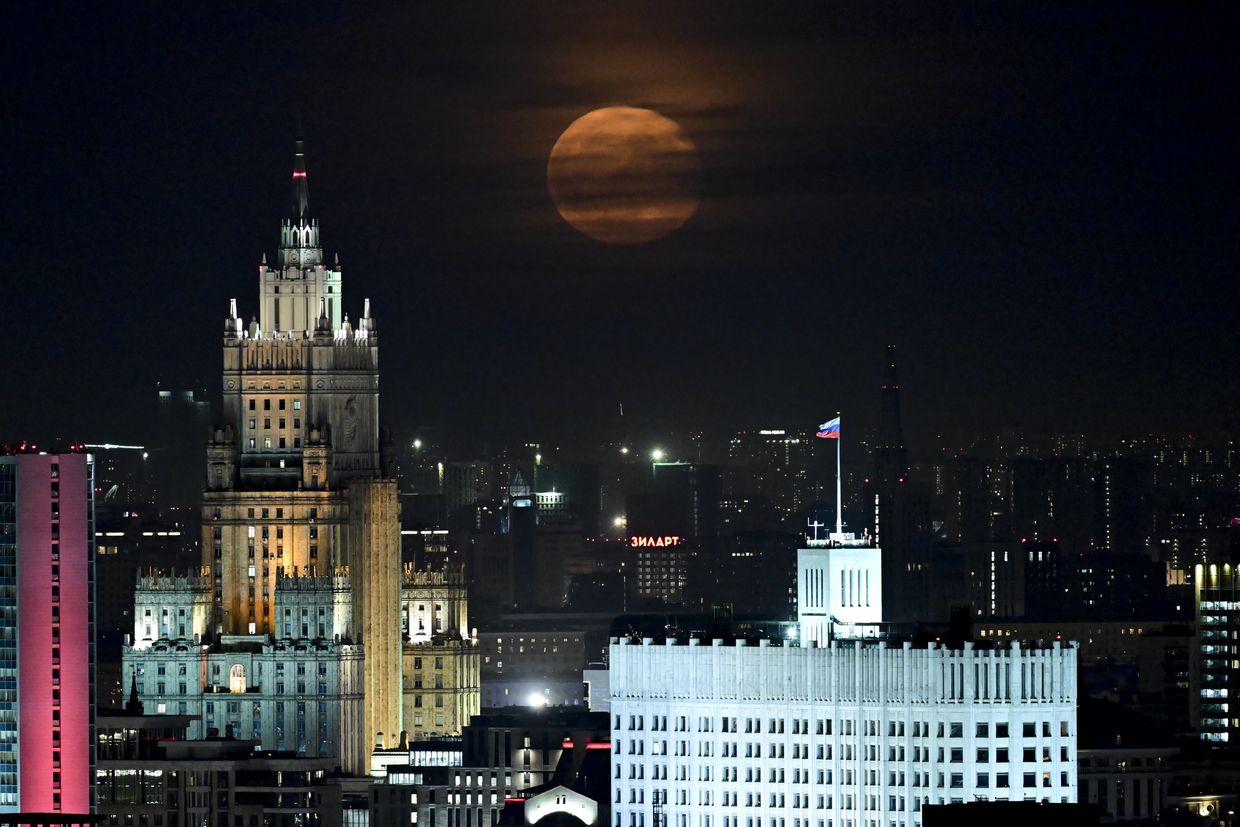


North Korea is considering sending up to 25,000 workers to Russia to assist in the mass production of Shahed-type attack drones, Japan's public broadcaster NHK reported on June 19, citing unnamed diplomatic sources in the West and Russia.
The workers would be sent to the Alabuga Special Economic Zone in Russia's Republic of Tatarstan, where Moscow operates a facility for assembling Iranian-designed Shahed drones. In return, Pyongyang is reportedly seeking drone operation training.
Shahed drones, known for their low cost and heavy explosive payloads, have been used extensively by Russia since late 2022 to attack Ukrainian cities. The Alabuga site has been repeatedly struck by Ukrainian forces in an attempt to disrupt production.
The media report follows a series of rapid developments in military cooperation between Moscow and Pyongyang. Russian Security Council Secretary Sergei Shoigu visited North Korea on June 17, reportedly on a "special assignment" from Russian President Vladimir Putin.
After meeting Kim, Shoigu said that Pyongyang had agreed to send 1,000 combat engineers and 5,000 military builders to Russia's Kursk Oblast to assist in reconstruction.
Ukraine controlled a part of Kursk Oblast following a cross-border offensive in August 2024. Russia regained much of the lost territory during a March 2025 counteroffensive that included backing from North Korean forces. According to estimates, North Korea has suffered over 6,000 casualties during the offensive operations.
Ukraine's military intelligence chief, Kyrylo Budanov, said on June 9 that Pyongyang and Moscow have agreed to start establishing domestic production of Shahed-136 drones on North Korean soil.
Kim remains a vocal ally of Putin, supplying not only soldiers but also artillery, drones, and ballistic missiles. During Russia's May 9 Victory Day Parade in Moscow, Putin personally greeted North Korean troops, though Kim did not attend.
 The Kyiv IndependentOleg Sukhov
The Kyiv IndependentOleg Sukhov
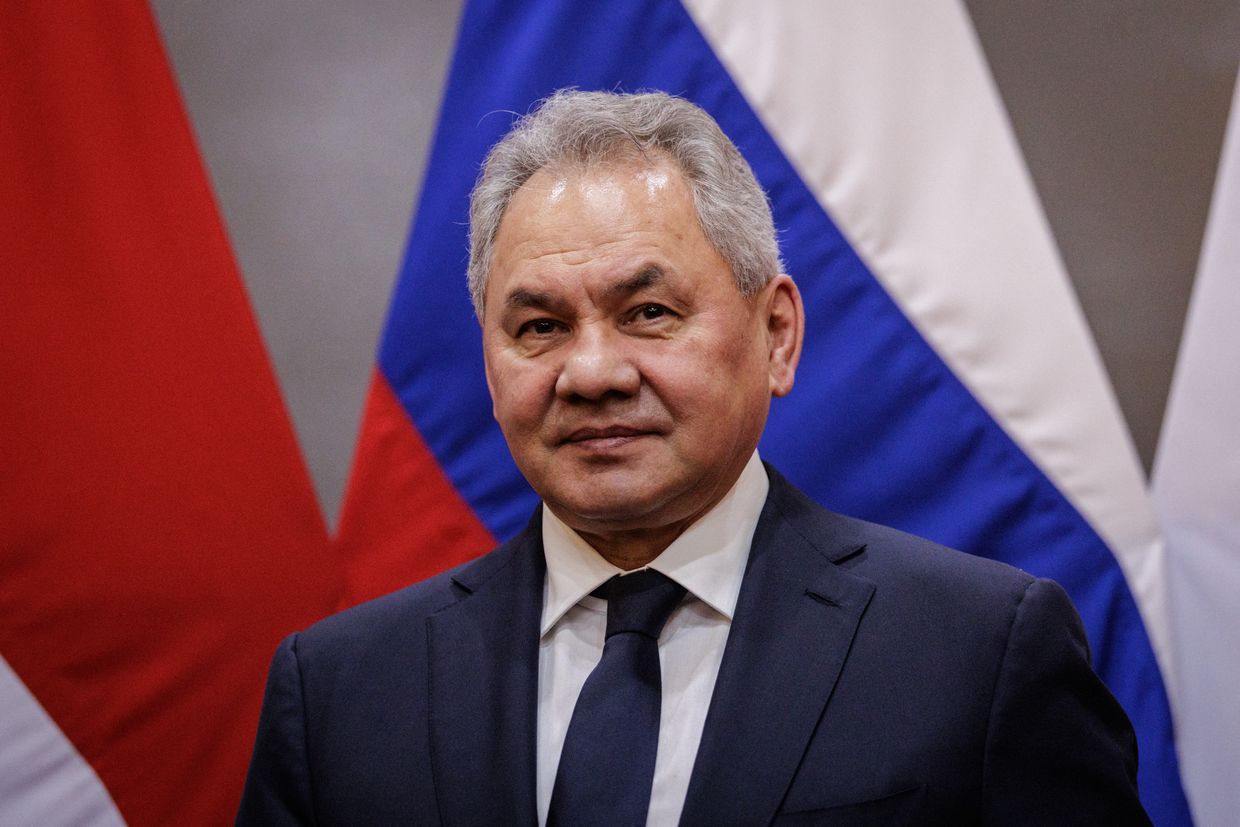

Editor's note: This item has been updated to include additional details.
Russian Security Council Secretary Sergei Shoigu arrived in Pyongyang on June 17 on a "special assignment" from President Vladimir Putin, Russian state-controlled news agency TASS reported on June 17.
Shoigu met with North Korean leader Kim Jong Un during the visit, TASS reported, citing a correspondent on the ground. The purpose of the visit has not been officially disclosed, but it occurs amid intensifying military cooperation between the two nations.
After the meeting with Kim, Shoigu announced that North Korea had decided to send 1,000 sappers and 5,000 military builders to rebuild Russia's Kursk Oblast, according to TASS.
Ukraine initially captured 1,300 square kilometers (500 square miles) of Russian territory during a cross-border operation that began in August 2024. Since then, Ukraine has lost most of the territory after Moscow launched a counteroffensive in March, which was supported by Pyongyang's military.
According to a June 15 report from the United Kingdom's defense intelligence, over 6,000 North Korean soldiers have been killed or wounded during operations in Russia's Kursk Oblast.
According to TASS, Shoigu also discussed in Pyongyang the creation of memorials in Russia and North Korea in memory of Korean soldiers who died fighting in the Kursk Oblast.
North Korea has emerged as one of Russia's closest military partners during its full-scale invasion of Ukraine. Since late 2023, Pyongyang has supplied Moscow with millions of artillery shells, at least 100 ballistic missiles, and reportedly deployed more than 11,000 troops to assist Russian operations in Ukraine’s border regions.
The U.K. said Pyongyang's losses account for more than half of the North Korean contingent deployed to the region in fall 2024. British officials attributed the high casualties to highly attritional ground assaults.
Earlier this year, South Korea's Joint Chiefs of Staff reported that North Korea sent an additional 3,000 soldiers to Russia in January and February to replenish losses.
In June 2024, Russia and North Korea signed a mutual defense pact obligating both countries to provide military assistance in the event of an external attack. Though North Korea only publicly acknowledged its participation in Russia's war against Ukraine in April 2025, open-source reports and intelligence assessments have indicated its involvement since at least the fall of 2024.
The Multilateral Sanctions Monitoring Team (MSMT), a United Nations-affiliated watchdog, reported in May that North Korea and Russia had engaged in "unlawful military cooperation" in violation of multiple UN Security Council resolutions. This included arms transfers, deployment of combat troops, petroleum exports to North Korea exceeding UN caps, and mutual military training.
According to MSMT findings, Russian-flagged vessels delivered up to 9 million rounds of artillery and multiple rocket launcher ammunition from North Korea to southwestern Russia in 2024 alone. These weapons were subsequently used in attacks against Ukrainian infrastructure and civilian targets in cities including Kyiv and Zaporizhzhia.
Russia has also reportedly provided advanced military technology to North Korea, including ballistic missile guidance systems, electronic warfare platforms, and short-range air defense systems. One MSMT participating state confirmed the transfer of at least one Pantsir-class vehicle to Pyongyang.
Kim Jong Un described his country's involvement in Russia's war against Ukraine as a "sacred mission" during a public address in May.
Shoigu's visit to North Korea comes amid intensified Russian aerial attacks across Ukraine, including the use of North Korean-made ballistic missiles containing components sourced from third-party suppliers.
 The Kyiv IndependentKateryna Hodunova
The Kyiv IndependentKateryna Hodunova